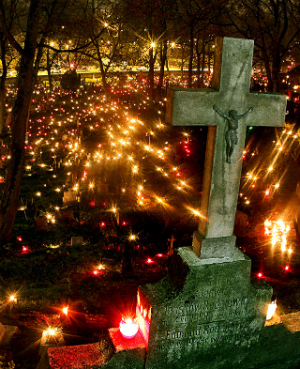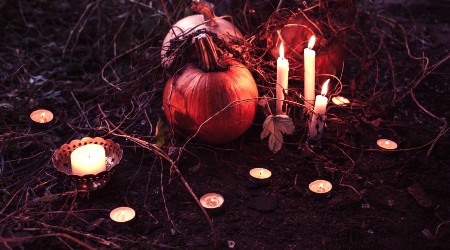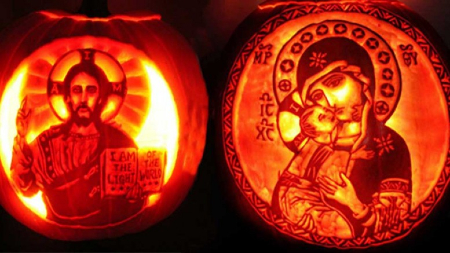 Hi readers, it seems you use Catholic Online a lot; that's great! It's a little awkward to ask, but we need your help. If you have already donated, we sincerely thank you. We're not salespeople, but we depend on donations averaging $14.76 and fewer than 1% of readers give. If you donate just $5.00, the price of your coffee, Catholic Online School could keep thriving. Thank you. Help Now >
Hi readers, it seems you use Catholic Online a lot; that's great! It's a little awkward to ask, but we need your help. If you have already donated, we sincerely thank you. We're not salespeople, but we depend on donations averaging $14.76 and fewer than 1% of readers give. If you donate just $5.00, the price of your coffee, Catholic Online School could keep thriving. Thank you. Help Now >
St. Foillan
FREE Catholic Classes
( Irish FAELAN, FAOLAN, FOELAN, FOALAN.)
Represented in iconography with a crown at his feet to show that he despised the honours of the world. He was born in Ireland early in the seventh century and was the brother of Saints Ultan and Fursey, the latter a famous missionary who preached the Faith to the Irish, the Anglo-saxons, and the Franks. Foillan, probably in company with Ultan, went with his brother Fursey when the latter, fleeing from his country then devastated by foreign invaders, retired to a lonely islands. Fursey soon went among the Anglo Saxons and built a monastery at Burgh Castle (Cnoberesburg) in Suffolk, between 634 and 650.
Seized again with the desire for solitude, Fursey left the monastery in the care of Foillan, who remained at the head of the community, and had the happiness of once more seeing his brother Fursey, who, having since gone to the kingdom of the Franks, came to visit him about 650. Soon a diastrous war broke out between Penda, the Mercian chief, and Ana, King of the Eastern Anglo-Saxons. Ana having been put to flight, the monastery of Cnoberesburg fell into the hand of the enemies. It was pillaged, and its superior, Foillan, barely escaped death. He hastened to ransom the captive monks, recovered the relics, put the holy books and objects of veneration on board ship, and departed for the country of the Franks, where his brother Fursey was buried. He and his companions were well received at Péronne by Erconwald, Mayor of the Palace. But soon, for some unknown reason, Foillan and his companions left Péronne and went to Nivelles, a monastery founded by St. Ita and St. Gertrude, wife and daughter of Duke Pepin I.
Foillan, like so many other Irishmen who went to the Continent in the seventh century, was invested with episcopal dignity, having doubtless been a monastic bishop at Cnoberesburg. He was therefore of great assistance in the organization of worship, and the holy books and relics which he brought were great; treasures for St. Ita and St. Gertrude. As the monastery of Nivelles was under Irish discipline, the companions of Foillan were well received and lived side by side with the holy women, occupying themselves with the details of worship under the general direction of the abbess. Through the liberality of Ita, Foillan was enabled to build a monastery at Fosses, not far from Nivelles, in the province of Namur. After the death of Ita in 652, Foillan came one day to Nivelles and sang Mass, on the eve of the feast of St-Quentin. The ceremony being finished, he resumed his journey, doubtless undertaken in the interests of his monastery. In the forest of Senege the saint and his companions fell into a trap set by bandits who inhabited that solitude. They were slain, stripped, and their bodies concealed. But they were recovered by St. Gertrude, and when she had taken some relics of the saint his body was borne to the monastery of Fosses, where it was buried about 655.
Foillan was one of the numerous Irish travellers who in the course of the seventh century evangalized Belgium, bringing thither the liturgy and sacred vessels, founding prosperous monasteries, and sharing considerably in the propagation of the Faith in these countries. Owing to the friendship which united him with Erconwald, Mayor of the Palace, and with the members of Pepin's famity, Foillan played a preponderant part in Frankish ecclesiastical history, as shown by his share in the direction of Nivelles and by the foundation of the monastery of Fosses. It is not surprising, therefore, that he should be honoured and venerated both at Nivelles and Fosses and to find at Le Roeulx (Belgium) a monastery bearing his name. As late as the twelfth century the veneration in which he was held inspired Philippe Le Harvengt, Abbot of Bonne-Espérance, to compose a lengthy biography of the saint. He is the patron of Fosses, near Charieroi. In the Diocese of Namur his feast is celebrated on 31 October, in the Dioceses of Mechlin and Tournai on 5 November.
Join the Movement
When you sign up below, you don't just join an email list - you're joining an entire movement for Free world class Catholic education.
-

-
Mysteries of the Rosary
-
St. Faustina Kowalska
-
Litany of the Blessed Virgin Mary
-
Saint of the Day for Wednesday, Oct 4th, 2023
-
Popular Saints
-
St. Francis of Assisi
-
Bible
-
Female / Women Saints
-
7 Morning Prayers you need to get your day started with God
-
Litany of the Blessed Virgin Mary
All Saints' Day, Halloween and All Souls' Day: What's the difference?
-

Should Christians Celebrate Halloween?
-

Since when did Halloween become a Christian holiday?
-
ADORABLE: A Little Boy's Heartfelt Lunchtime Prayer
-
Scientists Decode 3,000-Year-Old Babylonian Tablet, Revealing Potential Location of Noah's Ark
Daily Catholic
 Daily Readings for Friday, November 01, 2024
Daily Readings for Friday, November 01, 2024 St. Valentine Berrio-Ochoa: Saint of the Day for Friday, November 01, 2024
St. Valentine Berrio-Ochoa: Saint of the Day for Friday, November 01, 2024 Litany of the Saints: Prayer of the Day for Friday, November 01, 2024
Litany of the Saints: Prayer of the Day for Friday, November 01, 2024- Daily Readings for Thursday, October 31, 2024
- St. Wolfgang: Saint of the Day for Thursday, October 31, 2024
- Memorare: Prayer of the Day for Thursday, October 31, 2024
![]()
Copyright 2024 Catholic Online. All materials contained on this site, whether written, audible or visual are the exclusive property of Catholic Online and are protected under U.S. and International copyright laws, © Copyright 2024 Catholic Online. Any unauthorized use, without prior written consent of Catholic Online is strictly forbidden and prohibited.
Catholic Online is a Project of Your Catholic Voice Foundation, a Not-for-Profit Corporation. Your Catholic Voice Foundation has been granted a recognition of tax exemption under Section 501(c)(3) of the Internal Revenue Code. Federal Tax Identification Number: 81-0596847. Your gift is tax-deductible as allowed by law.






 Daily Readings for Friday, November 01, 2024
Daily Readings for Friday, November 01, 2024 St. Valentine Berrio-Ochoa: Saint of the Day for Friday, November 01, 2024
St. Valentine Berrio-Ochoa: Saint of the Day for Friday, November 01, 2024 Litany of the Saints: Prayer of the Day for Friday, November 01, 2024
Litany of the Saints: Prayer of the Day for Friday, November 01, 2024

